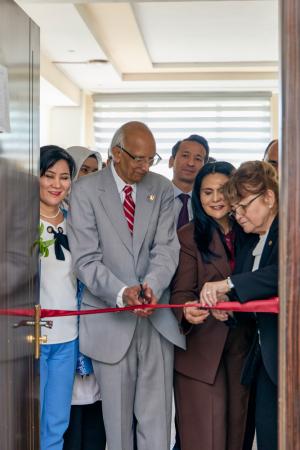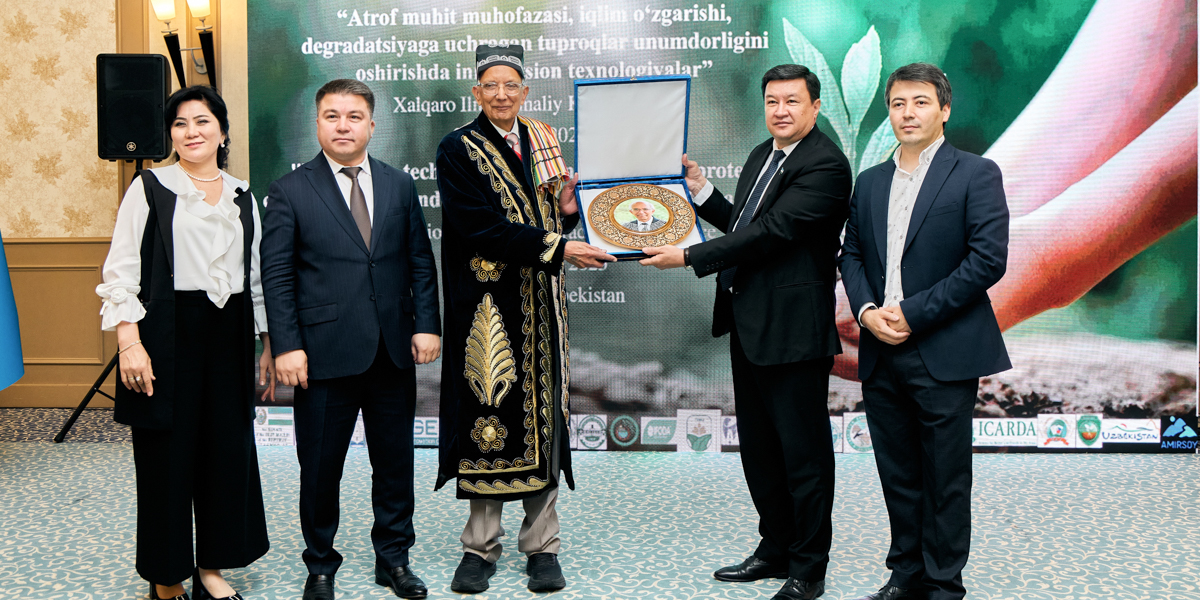
World-renowned Indian-American soil scientist Rattan Lal recently traveled to Tashkent, Uzbekistan to commemorate the opening of the Lal Carbon and Soil Health Center at the National University of Uzbekistan. The new center mirrors the successful model of the CFAES Rattan Lal Center for Carbon Management and Sequestration at The Ohio State University, where Lal serves as Distinguished University Professor and Director of the Lal Carbon Center.
The establishment of the center in Uzbekistan marks a significant step forward in global soil health research and carbon sequestration efforts. It represents an important expansion of scientific collaboration between Ohio State and Central Asia in addressing climate change and sustainable agriculture challenges.
"This new center will serve as a crucial hub for soil health and carbon research in Central Asia," said Lal.
The Carbon and Soil Health Center will focus on:
- Advanced research in soil carbon sequestration
- Sustainable agricultural practices, both organic and inorganic
- Climate change mitigation strategies
- Training next-generation soil scientists
Rattan Lal
Rattan Lal is a Distinguished University Professor at The Ohio State University and recipient of the 2019 Japan Prize, 2020 World Food Prize, 2022 Padma Shri and the 2024 Gulbenkian Prize for Humanity. His research focuses on soil-centric approaches to ecosystem management and climate change mitigation.
CFAES Rattan Lal Center for Carbon Management and Sequestration
CFAES Rattan Lal Center for Carbon Management and Sequestration at Ohio State is a premier research institution dedicated to the study of carbon sequestration in terrestrial ecosystems and the adaptation of agricultural practices to improve soil health and mitigate climate change. Its focus is to transform agriculture into a part of the solution to addressing environmental issues.
